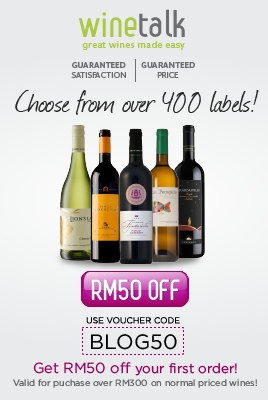Icewine, or Eiswein in German, is a type of dessert wine produced from grapes that have been left on the vine into the winter and frozen while still on the vine. It’s a German wine but is popularly produced in Canada due to the consistent cold temperatures. For optimal production, the grapes are left on the vines at least until January instead of September (normal harvest) and are harvested at nighttime at a minimum temperature of -5 degrees. The grapes have to be pressed while still frozen by which it would have lost 80 – 90% of its water content, producing a wine concentrate that is extracted from the fruit. The process of making this wine is very difficult and delicate and the production can easily be lost within just a few hours. Due to the time and effort that goes into the making of this wine, it can be rather costly.
Thursday, 23 October 2014
Wine 101: Sweet Wines & Fortified Wines (Part 2)
Posted by
Unknown
at
22:40
No comments:
Labels:
classic wine,
drinking wine,
fortified wine,
ice wine,
sweet wine,
wine
Differentiating
sweet wines from fortified wines can be a bit of a tough one when you’re
standing in the wine section of a supermarket, feeling overwhelmed by the rows
and rows of bottles. The labeling system on bottles is not always systematic
but some may indicate the method used to produce the wine be it fortified,
botrytis or others.
One way to
differentiate this would be by the alcohol percentage. Fortified wines
generally have higher alcohol content than classic sweet wines. As mentioned in
Part 1, Port wine is a fine example of fortified wine and it contains up to 10%
– 20% of alcohol while regular sweet wines maintain a range of about 8% to 14%
of alcohol.
Sweet red wines
are usually very rich and sweet, while whites are very light to rich. The alcohol level can give you clue but the
color of the wine is your best indicator. The rule of thumb is that the darker
the color, the bolder the wine. If
you’re looking to match your dishes with your wines, it’s best to go by color.
Rich chocolate or black fruity desserts match well with Ports and other red
wines while fruit-based desserts or simple cakes pair well with lighter colored
wines. In terms of local food, the richness and spice of Asian meals go well
with sweeter wines as the acidity and chilies (as long as it’s not too spicy)
cuts through the sweetness. For an extra flair, try a classic French match by
pairing Sauternes wine with Foie Gras (goose or duck liver ‘pâté’)!
Fun Fact: Ice Wine (Eiswein) is also sweet!
Icewine, or Eiswein in German, is a type of dessert wine produced from grapes that have been left on the vine into the winter and frozen while still on the vine. It’s a German wine but is popularly produced in Canada due to the consistent cold temperatures. For optimal production, the grapes are left on the vines at least until January instead of September (normal harvest) and are harvested at nighttime at a minimum temperature of -5 degrees. The grapes have to be pressed while still frozen by which it would have lost 80 – 90% of its water content, producing a wine concentrate that is extracted from the fruit. The process of making this wine is very difficult and delicate and the production can easily be lost within just a few hours. Due to the time and effort that goes into the making of this wine, it can be rather costly.
Icewine, or Eiswein in German, is a type of dessert wine produced from grapes that have been left on the vine into the winter and frozen while still on the vine. It’s a German wine but is popularly produced in Canada due to the consistent cold temperatures. For optimal production, the grapes are left on the vines at least until January instead of September (normal harvest) and are harvested at nighttime at a minimum temperature of -5 degrees. The grapes have to be pressed while still frozen by which it would have lost 80 – 90% of its water content, producing a wine concentrate that is extracted from the fruit. The process of making this wine is very difficult and delicate and the production can easily be lost within just a few hours. Due to the time and effort that goes into the making of this wine, it can be rather costly.
Subscribe to:
Post Comments (Atom)












No comments:
Post a Comment